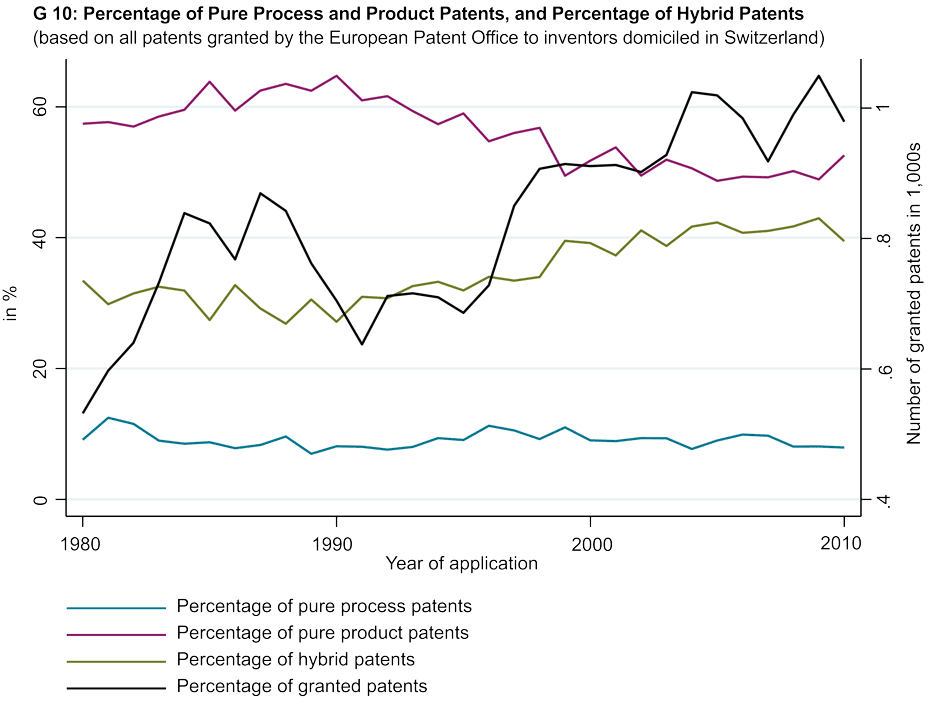Investments in Process Innovations Raise Productivity of Swiss Companies
- Innovation
- KOF Bulletin
Companies investing in product and production process innovations can achieve a significant increase in productivity, as shown by a study jointly conducted by KOF researchers and the German ZEW Institute. The correlation is particularly strong for companies that are subject to very high levels of international competition. Thus these investments evidently play an important role in securing competitive advantages.
In a study conducted in the context of the “European Patent Office Academic Research Programme”, researchers of the KOF Innovation Group and Germany’s Leibniz-Zentrum für Europäische Wirtschaftsforschung (ZEW) have investigated the impact of process patents on productivity in Swiss and German companies. Process patents predominantly relate to methods and systems designed to improve products and production processes.
To measure product and process technologies in patents, the researchers drew on the complete data stocks held by the European and the US Patent Offices and used a detailed text mining method to classify all claim texts. The classified text fields contain the ‘abstracts’ and ‘claims’ which set out the legal patent protection claims. The database comprises over 200 million of these text fields. While process technologies most commonly relate to methods and systems, product technologies predominantly relate to visible products, such as devices, vehicles, tools or materials.
Number of hybrid patents on the rise
Researchers distinguish between pure process patents, pure product patents and hybrid patents. Pure process patents exclusively contain text fields relating to process technologies, while product patents exclusively contain text fields relating to product technologies. Hybrid patents comprise both technologies. Access to the classified patent data (see bottom left) is not restricted.
The trend in patent types diverges over time, depending on the respective technology and country. However, in general, there has been a steady rise in the number of hybrid patents while the number of pure product patents tends to decline. Interestingly, pure process patents are more of a rarity, with many countries and technologies failing to show any particular dynamics.
The trend in hybrid patents is primarily driven by computer and other information and communications technologies. Graph G10 shows the trend in Switzerland.
Process technologies can secure competitive advantages
Statistical analysis shows a strong correlation between investments in process technologies and productivity growth in companies in Switzerland (in Germany the correlation is slightly weaker). Productivity is measured in terms of total factor productivity and is defined as the part of value creation that cannot be explained by standard input factors (capital, labour).
This confirms the assumption that processes are primarily designed for cost cutting and quality enhancement measures that contribute towards productivity growth. Pure process technologies thus appear to be central to corporate success even through their number is much smaller compared to other patent types. There is no such correlation with productivity where product and hybrid patents are concerned.
It is particularly striking that this correlation only appears in the case of companies which are subject to very high levels of international competition. Investments in process technologies may thus be crucial for securing advantages in highly competitive markets.
Contact
No database information available
